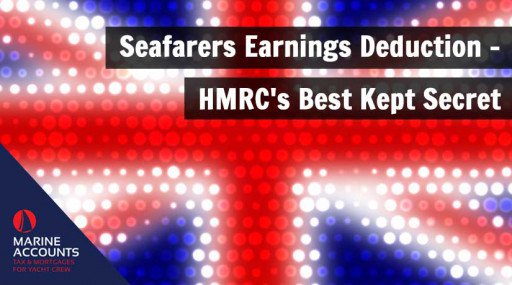Ukrainian Seafarers: Where & How to Pay Taxes
- Authors
-
-

- Name
- Patrick Maflin
-

As global events have developed over the last few years, we at Marine Accounts have been available to advise seafarers on the issues by which they have been more significantly affected than those working in other industries may well have been.
From COVID to Brexit and beyond, the repercussions have been felt strongly when it comes to travel, tax declarations and tax residency.
The lifestyle you lead, dictated by your employment arrangements, can lead to confusion and uncertainty which those working onshore are unlikely to experience in most situations.
Over the last few months, we've seen an increase in enquiries originating from the latest and perhaps most current issue effecting individuals globally - in particular seafarers from Ukraine.
In this article we look to address the questions raised for those who have been forced to leave their homes and move elsewhere with regard if they should be declaring their offshore income and where they should be doing so.
Chapters
Where Should I Be Paying Taxes?
If as a seafarer who's previously been based in Ukraine, and now find yourself with a base elsewhere and calling a new country home, it may be unclear as to where you should be declaring your income.
In truth, the answer is not always simple.
But there are some general tests and guidelines which can be applied to keep you on the right side of the taxman’s gaze.
Where you should be paying tax on your worldwide income will always be determined by your position of tax residency.
Essentially each country will apply certain tests to your individual circumstances to establish whether or not you should be paying taxes in their country.
The UK government have quickly established processes by which Ukrainian nationals forced to leave their homes can apply for the right to remain in the UK permanently.
Many other countries have done similar.
Whilst each country will apply different tests to determine your position of tax residency, the "centre of vital interests", "permanent place of abode" or what can generally be viewed as the "home test" is probably the most commonly applied.
The Home Test, applied under many different names in many countries, this test essentially dictates that you should be declaring your worldwide income in the country in which your home is established.
Tax authorities will consider where your home address and family are located as well as other factors including where you spend most of your time when not working.
If you meet this test or any other test applied in your home country, you will need to declare your seafaring income as well as any other income to the tax authority.
How Do I Declare My Income?
 Image source: Wikipedia
Image source: WikipediaOnce you’ve been able to determine where you are tax resident, most countries will have processes in place by which you can declare your income yourself.
It is always advisable to speak to a professional who's familiar with the tax laws in the country which you’re living, and will have a good understanding of the tax exemptions and deductions available to seafarers.
With queries for us coming mostly from Ukrainian seafarers in the UK, it is a great example to consider.
HMRC, the UK’s tax authority, offer UK based seafarers the opportunity to declare their entire worldwide income from work at sea 100% tax free.
In order to qualify for the deduction as a UK tax resident, you will need to meet the tests listed below:
- Establish a qualifying period by spending at least 183 days outside of the UK in the 365 days following your departure.
- Be an employee onboard a "ship".
- Visit at least one foreign port during each employment.
The fact that this opportunity is available in the UK and tax breaks for seafarers are available in many other countries, demonstrates the importance of understanding the system before declaring your income.
It's essential that your affairs are up to date, but you equally don’t want to find yourself paying more tax than necessary.
Finally...
To summarise when establishing a new home, it’s crucial firstly to understand your tax residency.
If you’re unsure of your position personally, then seeking professional advice is a key step in making sure you don’t fall foul of the tax man.
Once you've identified where you should be paying tax, then understanding the tax laws in your jurisdiction is the next requirement.
Missing out on a tax exemption or seafarers deduction because you aren’t aware of the laws could cost you thousands over the course of a few years.
So it’s essential you have a good understanding of the rules which are in place.
If you’re uncertain, an accountant familiar with the industry will be best placed to advise.
Contact Us
If you do find yourself in a position of uncertainty, we at Marine Accounts would be happy to help in reviewing your situation and making a plan to move forward with.
Simply get in touch with us today or let us know your thoughts in the comments section below.
Disclaimer: Any advice in this publication is not intended or written by Marine Accounts to be used by a client or entity for the purpose of (i) avoiding penalties that may be imposed on any taxpayer or (ii) promoting, marketing or recommending to another party matters herein.





